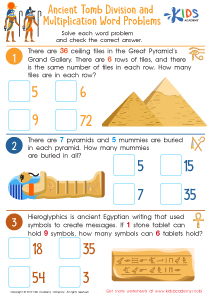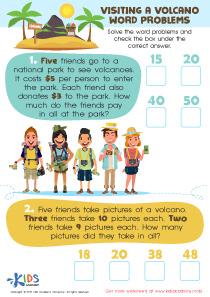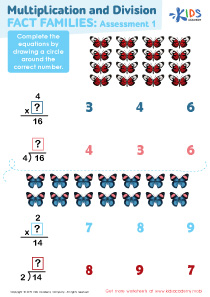Normal Early Logic and Geometry Quizzes for 4-Year-Olds
2 results
2 filtered results
Clear all filters2 filtered results
-
From - To
Introducing our captivating Normal Early Logic and Geometry for 4-Year-Olds interactive assessment quizzes! Specially designed to engage and educate, these quizzes offer a fun and interactive way to check your child's understanding of basic logic and geometry concepts. Each quiz is crafted to stimulate young minds, enhancing their problem-solving skills and spatial awareness. Children will receive immediate feedback, encouraging a positive learning experience and fostering a love for mathematics early on. Dive into our engaging quizzes tailored for 4-year-olds and watch as they embark on an exciting journey of discovery, building a strong foundation in early logic and geometry.
In today’s rapidly evolving educational landscape, the significance of foundational learning cannot be overstated, especially in critical areas such as logic and geometry. One standout resource in this domain is the Normal Early Logic and Geometry for 4-Year-Olds. These interactive quizzes are ingeniously designed to cater to the budding intellects of young learners, providing a solid foundation in essential mathematical concepts through an engaging and enjoyable format.
The Normal Early Logic and Geometry for 4-Year-Olds program is tailored specifically to the learning capacities of preschool-aged children, recognizing that early childhood is a critical period for cognitive development. At this stage, children are naturally curious and eager to explore the world around them. This program taps into this innate curiosity by presenting logic and geometry in a context that is both accessible and compelling to 4-year-olds.
One of the key benefits of the Normal Early Logic and Geometry for 4-Year-Olds is its focus on interactive quizzes. Unlike traditional learning methods, which often rely on rote memorization, these quizzes encourage active participation and hands-on learning. By engaging with the material in an interactive manner, children are able to better retain information and develop a deeper understanding of the concepts being taught. This interactive approach also helps to foster critical thinking and problem-solving skills, as children are challenged to apply what they have learned in new and varied contexts.
Furthermore, the Normal Early Logic and Geometry for 4-Year-Olds program recognizes the importance of making learning enjoyable. By incorporating elements of play and exploration into the quizzes, children are more likely to stay engaged and motivated to learn. This positive association with learning from an early age can have lasting benefits, setting the stage for a lifelong love of knowledge and discovery.
In addition to fostering cognitive development, the Normal Early Logic and Geometry for 4-Year-Olds program also supports social and emotional growth. As children work through the quizzes, they learn the value of persistence and the rewards of overcoming challenges. This helps to build self-confidence and resilience, qualities that are essential for success both in and out of the classroom.
Moreover, the Normal Early Logic and Geometry for 4-Year-Olds program is designed to be accessible and inclusive, making it an excellent resource for children with diverse learning needs and backgrounds. The quizzes can be adapted to suit individual learning styles, ensuring that every child has the opportunity to succeed and benefit from the program.
In conclusion, the Normal Early Logic and Geometry for 4-Year-Olds offers a comprehensive and engaging approach to early childhood education. By combining interactive quizzes with a focus on play and exploration, this program not only helps young learners develop essential mathematical skills but also nurtures critical thinking, problem-solving, and a love of learning. As such, it is an invaluable tool for parents and educators who are looking to give children a strong foundation in logic and geometry, setting them on the path to success in their future studies and beyond.












